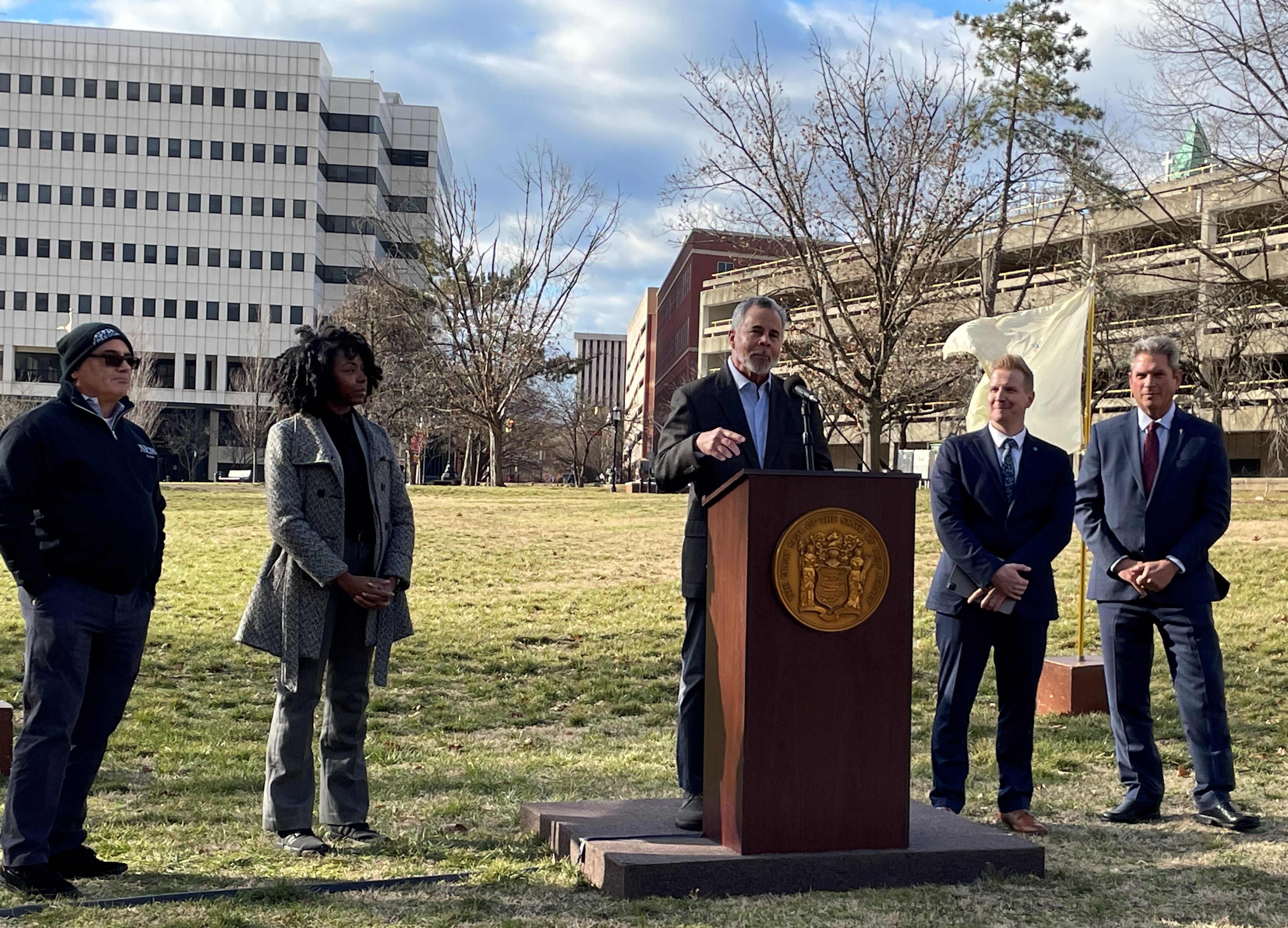News
New Jersey Conservation Foundation Receives Grant to Plant 1,000 Trees in Trenton
Jan 18, 2023
TRENTON, NJ – Trenton streets are getting greener! The New Jersey Conservation Foundation (NJ Conservation) and its partners were awarded a $1,336,125 grant from the state to plant 1,000 new trees throughout the City. NJ Conservation’s partners in this project include the City of Trenton, Isles, the New Jersey Tree Foundation, the Watershed Institute, Friends of Hopewell Valley Open Space (FoHVOS) and the Outdoor Equity Alliance. The New Jersey Department of Environmental Protection (NJDEP) announced the award today in Trenton.
The NJDEP’s Natural Climate Solutions Grant Program is funded by auction proceeds the state received through the Regional Greenhouse Gas Initiative (RGGI). These proceeds are to be used for natural resource restoration and enhancement projects that increase carbon stored in natural lands.
The partnership will plant 1,000 shade trees in the City as part of the project. Additionally, local residents will be engaged to assist with the care and stewardship of the trees. Public programs will be offered to heighten awareness about the environmental importance and value of urban trees to the quality of life in neighborhoods and the associated health benefits of the urban forest.
New trees will be planted in areas of the City with few to no street trees, such as State Street from Cadwalader Park through the downtown to Chambers Street; segments of North Clinton Avenue; and Broad, Front, Montgomery, and Warren Streets. The project also will include reforesting portions of Cadwalader and Mill Hill parks that have experienced heavy losses of trees due to age, pests and disease.
Through 2050, the trees planted during this project will:
• Sequester almost 3 million pounds of carbon dioxide
• Intercept over 14 million gallons of rainwater – reducing stormwater runoff by 2 million gallons
• Promote tree equity and benefit 14 distinct overburdened Trenton neighborhoods with low-income and minority populations; the trees will increase shade for residents, reducing the urban heat island effect impacting the City
• Restore the treescapes of historic Cadwalader Park and Mill Hill Park, an area that’s critical to Trenton’s overall downtown revitalization• Aid in the restoration of historic districts including the D&R Canal, Berkeley Square, State House, Mill Hill, and Ewing-Carroll Historic District to their original grandeur.
 Photo from today’s ceremony in Trenton announcing the NJDEP’s Natural Climate Solution Grants. From left: Trenton Mayor Reed Gusciora; Kandyce Perry, Director of the NJDEP’s Office of Environmental Justice; Jay Watson, Co-Executive Director of the New Jersey Conservation Foundation; NJDEP Commissioner Shawn M. LaTourette; Tim Dillingham, Executive Director of the American Littoral Society.
Photo from today’s ceremony in Trenton announcing the NJDEP’s Natural Climate Solution Grants. From left: Trenton Mayor Reed Gusciora; Kandyce Perry, Director of the NJDEP’s Office of Environmental Justice; Jay Watson, Co-Executive Director of the New Jersey Conservation Foundation; NJDEP Commissioner Shawn M. LaTourette; Tim Dillingham, Executive Director of the American Littoral Society.
“This grant is an investment in our city’s green infrastructure and its people. We now have an opportunity to not only plant trees, but also engage the community in the long-term care that will ensure these trees thrive for the benefit of future generations,” New Jersey Conservation Foundation Co-Executive Director Jay Watson said. “We believe this project can be transformative in our capital city where residents are experiencing disproportionate impacts of climate change. Urban neighborhoods are dealing with the ‘heat island effect’ that causes higher ambient temperatures than in suburban and rural areas.”
“Isles is excited to stand with the NJ Conservation Foundation combating ‘heat island’ effects that are so harmful for Trenton residents,” Isles Executive Director Sean Jackson said. “By planting these trees and ‘greening the City’ we create a healthier community, enhance the local environment, and support the vitality of our neighborhoods — all while creating jobs for people entering the green workforce.”
“The environmental benefits of trees are well-documented, and we know the collective impact trees, and a thriving tree canopy, has on the environmental resilience of a city,” New Jersey Tree Foundation Executive Director Lisa Simms said. “That’s why this project is happening in the right place at the right time — green infrastructure is a critical tool in addressing the effects of climate change; each tree planted will provide decades of service to protect our capital city against fluctuations in temperature and precipitation.”
“The Watershed Institute is excited to be working with NJ Conservation and other partners to plant trees in Trenton,” Jim Waltman, Executive Director at The Watershed Institute, said. “Trees address numerous environmental problems by soaking up floodwaters, capturing carbon dioxide from the air to protect our climate, and cooling our cities in the summer heat.”
“FoHVOS and the Outdoor Equity Alliance are looking forward to engaging local neighborhoods, students, and communities in this exciting project,” FoHVOS Executive Director Lisa Wolff said.
“We are excited to partner with the New Jersey Conservation Foundation and plant 1,000 trees throughout Trenton,” Trenton Mayor Reed Gusciora said.
NJ Conservation is a partner in another project that was awarded funding through the NJDEP’s Natural Climate Solutions Grant Program to enhance Camden’s tree canopy for climate and community benefits. The Camden project is led by the Trust for Public Land in partnership with the NJ Tree Foundation, Camden Community Partnership and the Delaware Riverkeeper Network. This project aims to introduce at least 800 trees across public spaces and at least 215 trees in public housing complexes in Camden.
Explore More
The State
We're In
